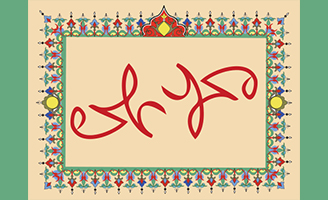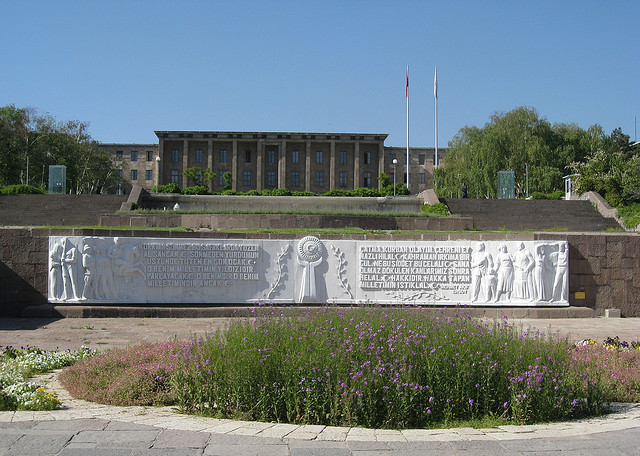The Portentous Legacy of “New Turkey”: Sectarianism Invited
By Halil Karaveli (vol. 8, no. 9 of the Turkey Analyst)
The Islamists no longer occupy the moral high ground in Turkey. And Islamization has at least to some extent ceased to serve the interests of Turkish capitalism. Yet what beckons is not the disappearance of the Islamic factor from Turkish politics, but its irruption in new, uncontrolled form. The legacy of the “New Turkey” – the catchword of the AKP regime – is a portentous exacerbation of sectarianism.

What the Columnists Say
Ali Bayramoğlu in Yeni Şafak writes that AKP’s otherwise legitimate struggle against the Gülen fraternity will remain flawed from a democratic perspective until the party acknowledges its own responsibility for the acts of the “cemaat” when the two were still allies. Fatih Yaşlı in Yurt writes that Turkish intellectual and political life suffers from a predilection for what he calls “easy opposition” that does not question who one is allied with as long as the cause is deemed to be good, which today blinds the opponents of AKP to the responsibility of the Gülenists in bringing about the present authoritarian rule. Murat Yetkin in Radikal writes that the talk in political circles is that AKP is preparing for a coalition with MHP after the general election in June. Orhan Bursalı in Cumhuriyet writes that Erdoğan is distancing himself from the Kurds, and is instead teaming up with the military. Umut Özkırımlı on the news site Diken writes that AKP’s, and generally the Islamists’ lasting legacy is a generalized hatred that has become a permanent, defining feature of Turkey’s society.

Creeping Shadows: The Repercussions of the AKP’s Aggressive Policy towards the HDP
By Gareth Jenkins (vol. 8, no. 8 of the Turkey Analyst)
In recent weeks, Turkey’s ruling Justice and Development Party (AKP) has pursued an increasingly aggressive policy towards the pro-Kurdish Peoples’ Democratic Party (HDP) in the hope of pushing the party below the 10 per cent national threshold in the June 7, 2015 general election while simultaneously preventing Turkish nationalists amongst the AKP’s own voters from defecting to the Nationalist Action Party (MHP).
Candidate Lists for the Election to Parliament Display Worrying Fault Lines
By M.K. Kaya (vol. 8, no. 8 of the Turkey Analyst)
President Erdogan’s visit to Saudi Arabia and his public criticism of Iran suggest an adjustment of Turkey’s Middle East policies are under way. The Syrian conflict cooled Turkey’s relations with Iran, but boosted an alignment with Gulf States. But then, differences over Egypt seriously complicated Turkish-Saudi relations. Following events in Iraq and Yemen, the deck appears once more to be rebalanced – a new understanding with Riyadh appears to be underway, and Turkish-Iranian relations are tense. But the key question is whether these adjustments are stable, given that foreign policy appears indexed in part on Erdogan’s mood. With the ruling elite in flux, so is foreign policy.

What the Columnists Say
İbrahim Karagül, the editor in chief of Yeni Şafak, writes that AKP’s enemies in the West, the Fethullah Gülen fraternity, big business in Turkey and the “Gezi saboteurs” have formed an alliance to overthrow the Turkish government by starting an Alevi uprising. He writes that the terrorist group DHKP-C has been charged with the function as the armed wing of this alleged coalition and that the killing of a prosecutor in Istanbul last week was the first act in a scheme to start a sectarian violence. Mümtazer Türköne in Zaman writes that terrorism is going to benefit the AKP government and he asks “What acts of terrorism are you planning during the run-up to the elections?” He writes, “The martyrdom of the prosecutor was a cause for great satisfaction among the ruling circles.” Hakan Aksay on the t24 news site notes with alarm that Selahattin Demirtaş, the co-chairman of the pro-Kurdish HDP in a speech recently evoked the risk that he might be killed during the election campaign. Orhan Bursalı in Cumhuriyet argues that the Kurds are going to consent to the introduction of presidential system that Erdoğan covets, in return for recognition of their identity and autonomy, but that AKP-PKK are never going to be able to impose their constitution on a majority that resists it.








